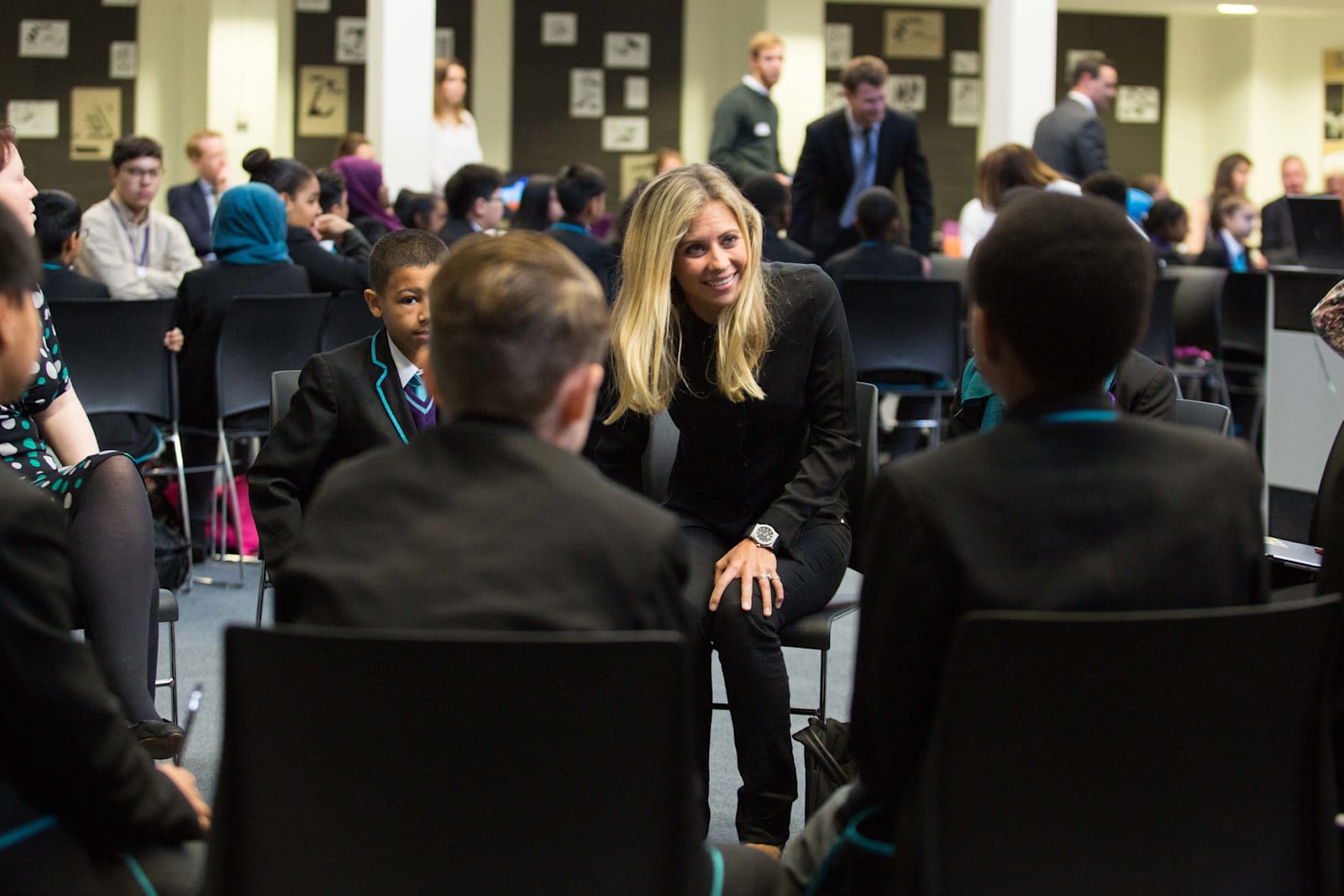Five ways to help with home-schooling
I have a confession to make… my children don’t listen to me! Seriously, unless I bribe them, I’m really struggling to get them to sit still for more than half an hour to do their schoolwork. I know they’re only five-years-old and sitting still is an issue at the best of times, but I can’t help feeling like a bit of a mummy failure. Is anyone else feeling the same?
The first few weeks after the schools closed, I actually enjoyed the role of ‘teacher’. Setting up their classroom table with arts, crafts reading aids and displaying their work on the fridge came with a sense of excitement. Freddie embraced his role as the PE teacher wholeheartedly and, the kids loved having Mum and Dad on call all day.
Starting last week we’re trying to just accept the chaos and go a little easier on ourselves when things don’t quite go to plan. If you’re managing to juggle parenting with working, teaching and everything else going on – you’re doing a brilliant job, and I’m more than a little bit jealous!
I’ve always believed that asking for advice is a sign of strength not weakness, so I decided to turn to some of the projects we support at Big Change and what we’ve learnt over the years to get some tips. I hope you find them helpful too and note they are definitely more suited to young children. I thank my lucky stars that I don’t have three teenagers who need home-schooling – all of you who do deserve a gold medal right now!
1. Try and find a new kind of structure: Uncertainty is a such a big trigger for stress and anxiety so finding some sort of routine and structure is a great way to tackle the uncertainty. We all learn in different ways and at different times, so try to work out when is best for lessons, and the space around it can be reading and play! Maybe your little ones focus best in the morning but need a big ‘brain break’ before 10am – how can you fit this into your routine?
2. Think outside the desk: At Big Change we’ve also been exploring how, when and where young people develop valuable new knowledge and skills. Our kids get pretty restless, sitting at the table for hours at a time, so we’re getting a bit creative with their learning space! We’re using daily walks as mini excursions and P.E classes. I’ve also been getting ideas for activities from Big Change’s project partners at 50 Things To Do. It’s really handy as I’m otherwise completely out of ideas at this point!
3. Make wellbeing a priority: One of our biggest hopes at Big Change is for education systems to support the ‘whole child’ and help the next generation become more resilient, independent, confident and happy. During this difficult time, we need to prioritise the wellbeing of our little ones and help them cope with change more than ever. Our friends gave Freddie and I some great advice on this recently. They noted that as kids learn how to cope with difficult situations, they will be observing how the adults around them are handling the challenges. By staying positive, open-minded and calm as much as possible – we’ll hopefully teach out kids to respond to stressful situations in the same way. It’s also a great reminder to make sure we’re looking after our own wellbeing too!
4. Make it playful: A big focus for us at Big Change is to capture how students learn in different contexts and explore new ways for them to find their passion and ignite a life-long love of learning. This period of home-schooling is a great time to embrace our kids curiosity, playfulness and experimentation to encourage continuous learning on a deeper level. Whether it’s baking, daily chores, board-games, science experiments or writing letters to friends to describe how they’re feeling and what life has been like – play is such an important part of education! It’s also a fun way to break up the day as adults too. If you’re looking for resources, one of our Big Change project partners (EasyPeasy) has made their home learning app temporarily free to help during the pandemic.
5. Make the words counts: Oracy, language skills and communication are so critical in unlocking a child’s potential. One of our project partners at Big Change, Voice 21, shows the need for schools to prioritise vital verbal communication skills in the same way they do reading and writing. As parents and caregivers, this is an area of education where we have a massive influence! While schools are closed, I’m trying to encourage more discussion, engage in healthy debates, express our feelings, and communicate more openly with our little ones. Storytelling, rhyming and poetry is a great place to begin here. You can find a great selection of poems for free with Poetry By Heart and Audible have made their collection of kids stories free to stream - for as long as schools remain closed. I also love this poster from Mellow Doodles to help us all find new words for how we’re feeling right now!
I really hope these ideas make your home-schooling experience a little easier and bring that initial sense of excitement back, for parents and kids alike. I’ve been searching for tips and advice from other parents as well, so let me know if you have any more up your sleeve!
Hang in there, and visit Big Change to learn more. To all teachers out there – thank you, thank you, thank you. You’re all amazing.






